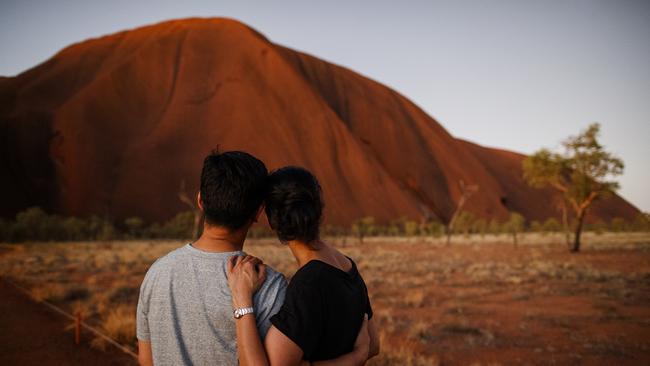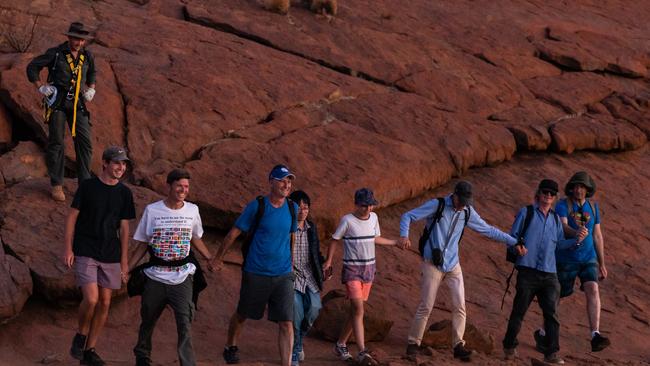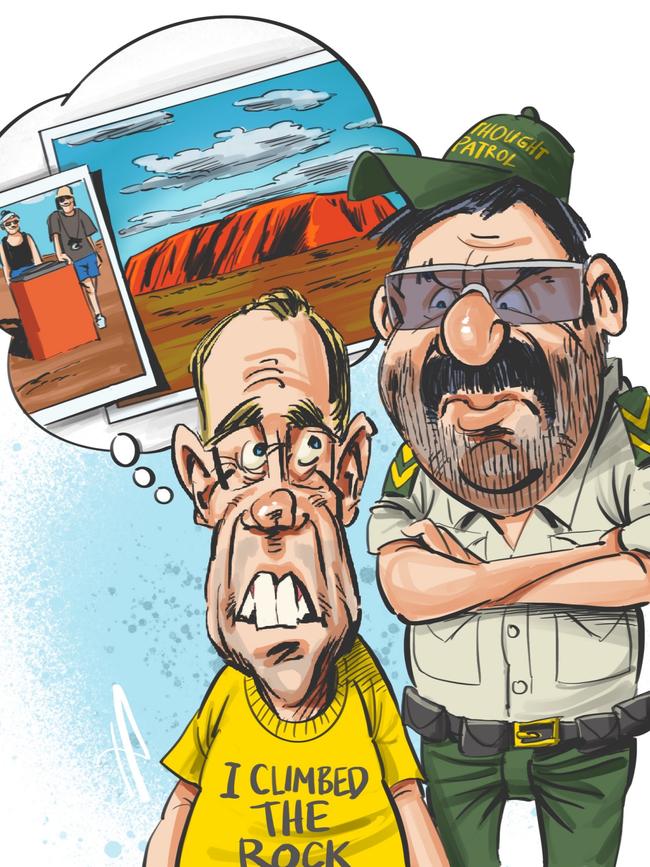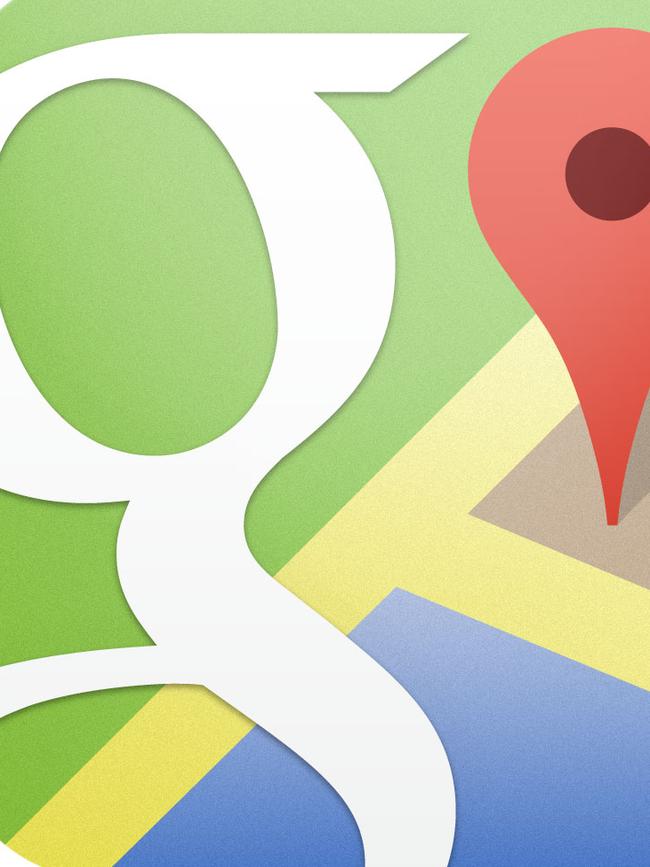Tim Blair: Google is banning us from even thinking about climbing Uluru
It’s been illegal since last year to scale Uluru, and Google is now complying with requests to remove images that allow even an imaginary climbing experience, writes Tim Blair.
Opinion
Don't miss out on the headlines from Opinion. Followed categories will be added to My News.
Imagine committing a criminal act. This is easy and harmless. People do it all the time.
For example, the other day I imagined acts of vengeance that might be carried out upon a fellow whose inattention allowed a shopping trolley to begin rolling towards my car.
It’s a steep little carpark at the local Coles, and trolleys are always rolling this way and that.
In my mind, this gentleman was variously thrown from a helicopter, fed to ravenous piranha and forced to live in Melbourne among a zombie community of glassy-eyed “Stand with Dan” disciples.
In reality, he quickly caught up with the errant trolley and offered a friendly wave of contrition.
No harm done. Nor was any harm done by my idle violence fantasies.
Now imagine yourself climbing Uluru. Such a feat is now banned, of course. Anyone caught climbing the rock can expect to be fined more than $600.

MORE TIM BLAIR
Albo’s chance to open the Curtins on a new ALP era
States in a high-stakes COVID war of blame
You Can Get it Walking, You Can Get it Talking
But merely thinking about climbing the rock is surely nothing to be concerned about.
Neither should anyone be upset by the idea of others looking at images of people climbing the rock when climbing was legal, or of shots showing the now-forbidden climbing path.
Parks Australia sees this very differently, however.
Last week the federal agency contacted Google to request that street view images of Uluru’s summit be removed.
“Google Maps' street view function allows people to move around environments as part of a virtual walking tour,” the ABC reported.
“It contains 360-degree images of the summit of Uluru, allowing users to effectively defy the visitors' ban.”
No, it doesn’t. No walking is happening. The ban still applies. People are simply looking at areas where people previously and legally walked.
Perhaps they are even allowing themselves to think of the experience. That’s all. Nothing more.

“A spokesperson for Parks Australia said it had ‘alerted Google Australia to the user-generated images from the Uluru summit that have been posted on their mapping platform’,” the ABC’s report continued.
“Parks had ‘requested that the content be immediately removed in accordance with the wishes of Anangu, Uluru’s traditional owners, and the national park's Film and Photography Guidelines’.”
Let’s take this a step further, if you will. Millions of people have little need of photographs in order to conjure an imagined Uluru climb.
That’s because, like me, they’ve already climbed it.
My mid-80s memories include an overweight American tourist quitting the climb about one-third of the way up, the climb’s unexpectedly circuitous route, and a plaque at the rock’s base listing climbers who had perished (many by falling during their descent).
Retaining those memories is presumably against the wishes of Anangu and Parks Australia. So too are any private photographs or footage of the climb.
Good luck to anyone wishing to enforce the deletion of personal property or thoughts, although that seems to be the long-term aim.
And good luck to anyone of insufficient importance who has a legitimate complaint against Google or any of the other tech giants, which are notoriously slow-moving when it comes to correcting defamatory or violence-advocating content.

No such trouble for the Uluru complainants, however.
“Google Australia told the ABC that it was working on having all the images removed, including the user-generated content that allowed the walk-through,” the ABC reported.
This is an oddly selective approach, and plainly does not apply in other cases.
It would be the work of a few moments to assemble, from Google-archived images and footage, a kind of “virtual riot” in which an observer may imagine he or she is participating.
You wouldn’t know it from the hamstrung efforts of local law enforcement, but it is illegal in Portland, Oregon, to throw firebombs and rocks at buildings and people.
Yet the only people advocating for images and footage of ongoing riots to be deleted are the leftist rioters themselves, who fear identification.
Some charged protesters have even complained that their lives were “up-ended” by the online publication of their police mugshots.
They don’t seem bothered by disruption to the lives of those whose property they destroy.
“We’ve been lying low, and to be honest, we’ve been staying at home with the blinds closed,” rioter Phillip Wenzel complained after his police image ran online.

Many buildings in downtown Portland don’t have blinds. There’s no point, what with all the windows being broken.
Wenzel, who works at a Portland legal firm when he isn’t showing up at riots with his wife, was charged with assaulting a police officer, resisting arrest, interfering with police and disorderly conduct.
He was released the next day. Perhaps these rioters would suffer more serious responses if it was revealed they’d scaled Uluru.
Back at Coles, seeking to atone for thinking ill of my fellow shoppers, I subsequently helped an elderly woman wheel a loaded trolley up the incline to her car.
“They can be difficult to control,” she said. And then she confessed: “I once had to pay a man’s insurance bill when a trolley rolled away and damaged his car.”
No piranha were involved, then. Or helicopters. Or forced Victorian relocation.
She got off very lightly.
